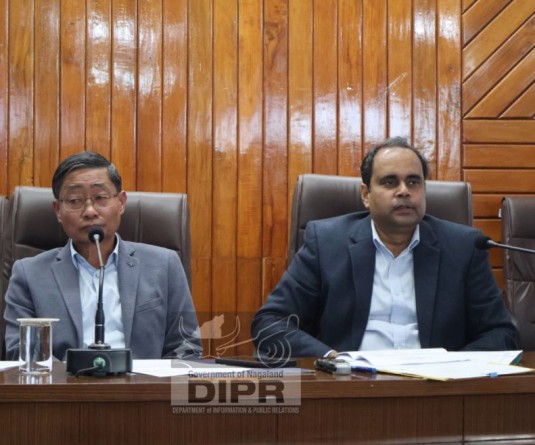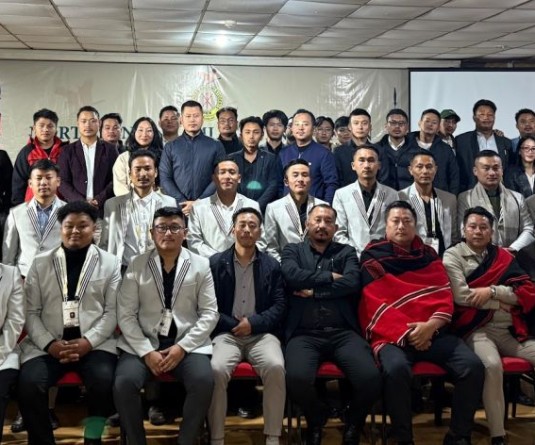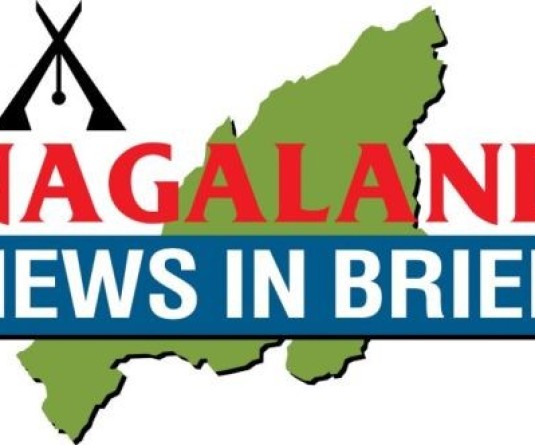
• No monitoring agency of funds that are outside the State budget •
Nagaland State invested Rs. 278.44 crore with zero returns during last 5 years
• Departmental inquiries suggested to bring defaulters to book
Our Correspondent
Kohima | March 31
The report of the Comptroller and Auditor General of India (CAG) on Nagaland State Finances for the year ended 31 March 2015, which was tabled in the recently concluded State assembly session in Kohima, while referring to overview of funds transferred directly from the Government of India (GoI) to Nagaland State, noted that during 2014-15, an approximate amount of Rs. 122.99 crore was directly transferred by GoI to the State Implementing Agencies.
The report stated that as long as these funds remain outside the State budget, there is no single agency monitoring its use, and there is no readily available data on how much is actually spent in any particular year on important schemes which are being implemented by State implementing agencies but are funded directly by the GoI.
Government investment
The CAG found that the Nagaland State Government had invested Rs. 278.44 crore in Statutory Corporations, Rural Banks, Joint Stock Companies and Cooperatives by the end of March 2015. The average returns on this investment was nil during the last five years, the report stated.
It recommended that the government should ensure better value of money in investment by identifying the companies/corporations which are endowed with low financial but high socio- economic returns and justify if high cost borrowing are worth being channelized there. Initiatives may be taken to revive or close down or sell out the huge loss making corporations/companies.
Financial management and budgetary control T
here was saving of Rs. 2909.98 crore in 71 grants and 6 appropriations under revenue section, 51 grants under capital section offset by excess of Rs. 17.37 crore in 5 grants under revenue section and 3 grants under capital section and 1 appropriation (Public Debt- Repayment).
The report stated that during the year, though the overall saving was Rs. 2892.61 crore only, the amount surrendered was Rs. 2908.24 crore (100.54 per cent). There was also an excess expenditure of Rs. 38.78 crore in 9 grants during 2014-15. This excess expenditure together with an excess expenditure of Rs. 572.19 crore pertaining to 2000-01 and 2005-06, 2008-09 to 2013-14 require regularization by the Legislature under Article 205 of the Constitution of India.
The Report stated that a rush of expenditure was noticed in 6 cases in which expenditure exceeding Rs. 10 crore or more than 50 per cent of the total expenditure was incurred in the last quarter of 2014-15 and in some cases in the month of March 2015.
The report stated that there were 198 AC Bills involving Rs. 185.52 crore awaiting adjustment due to non- submission of DCC Bills for long periods and therefore was fraught with the risk of misappropriation.
“Budgetary controls should be strengthened in all the government departments, particularly in the departments where savings/excess persisted for last five years. A close and rigorous monitoring mechanism should be put in place by the DDOs to adjust the Abstract Contingent Bills within sixty days from the date the amounts are drawn,” the report stated.
The report stated that timely submission of utilization certificates is a major area of concern. At the end of March 2015, 104 UCs involving an aggregate amount of Rs. 217.65 crore were pending for submission even after a lapse of one to five years from various departments.
Though the accounts of the State autonomous bodies and departmental commercial undertakings were over due, these accounts were not submitted. Non-submission of accounts in time amounted to non- compliance with the financial rules, the report stated.
The report also stated that as on March 31, 2015, 34 cases of misappropriations, defalcation etc. involving Rs. 616. 31 crore in 15 departments were pending finalization.
The report further added that the accounts of autonomous bodies/ authorities and departmental commercial undertakings need to be finalized at the earliest, adding that “departmental inquiries in all fraud and misappropriation cases should be expedited to bring the defaulters to book.”






